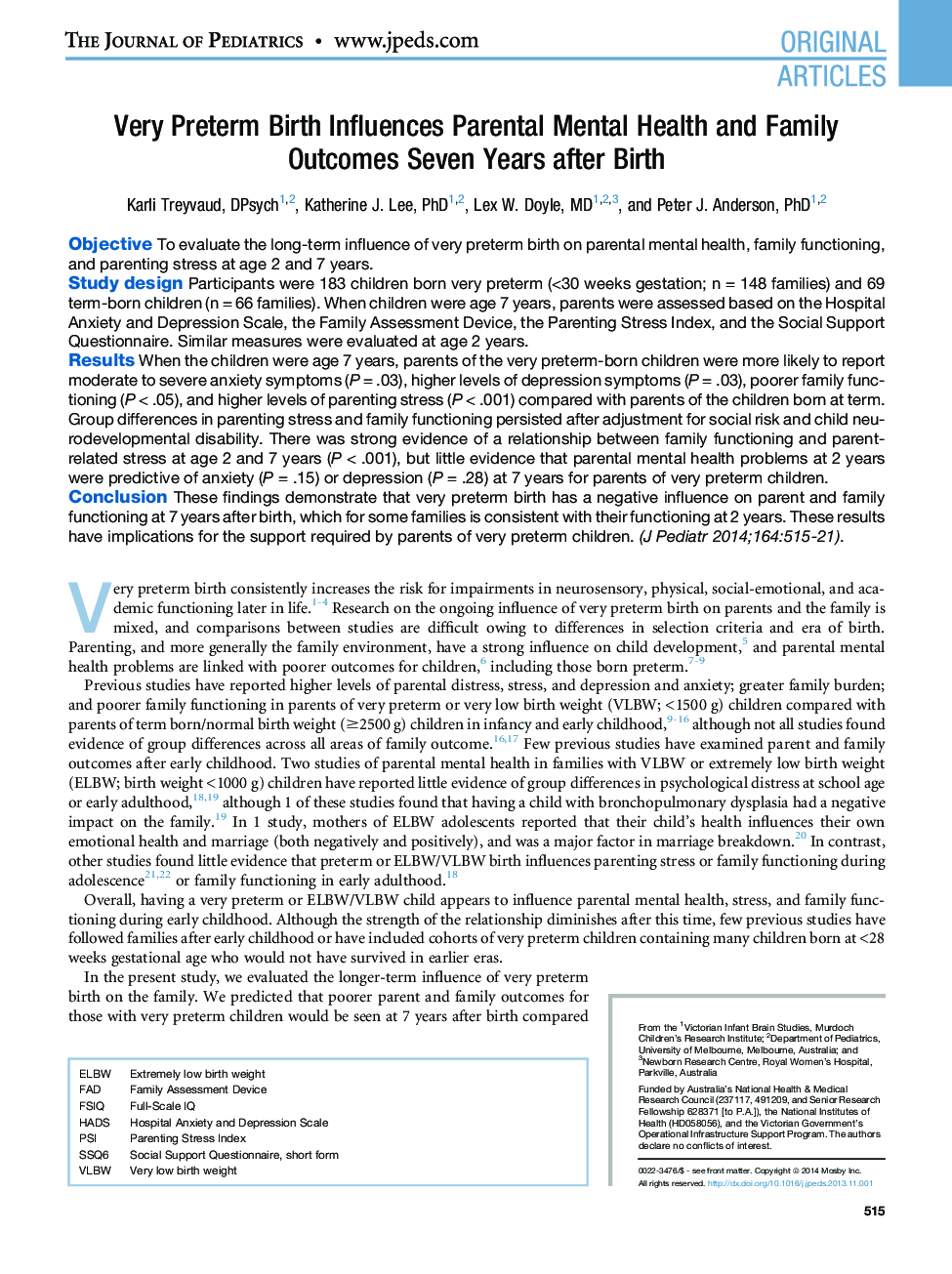| Article ID | Journal | Published Year | Pages | File Type |
|---|---|---|---|---|
| 6222614 | The Journal of Pediatrics | 2014 | 7 Pages |
ObjectiveTo evaluate the long-term influence of very preterm birth on parental mental health, family functioning, and parenting stress at age 2 and 7 years.Study designParticipants were 183 children born very preterm (<30 weeks gestation; n = 148 families) and 69 term-born children (n = 66 families). When children were age 7 years, parents were assessed based on the Hospital Anxiety and Depression Scale, the Family Assessment Device, the Parenting Stress Index, and the Social Support Questionnaire. Similar measures were evaluated at age 2 years.ResultsWhen the children were age 7 years, parents of the very preterm-born children were more likely to report moderate to severe anxiety symptoms (P = .03), higher levels of depression symptoms (P = .03), poorer family functioning (P < .05), and higher levels of parenting stress (P < .001) compared with parents of the children born at term. Group differences in parenting stress and family functioning persisted after adjustment for social risk and child neurodevelopmental disability. There was strong evidence of a relationship between family functioning and parent-related stress at age 2 and 7 years (P < .001), but little evidence that parental mental health problems at 2 years were predictive of anxiety (P = .15) or depression (P = .28) at 7 years for parents of very preterm children.ConclusionThese findings demonstrate that very preterm birth has a negative influence on parent and family functioning at 7 years after birth, which for some families is consistent with their functioning at 2 years. These results have implications for the support required by parents of very preterm children.
